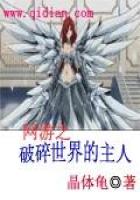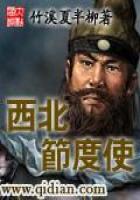Orso found Colomba in a state of considerable anxiety because of his prolonged absence. But as soon as she saw him she recovered her usual serene, though sad, expression. During the evening meal the conversation turned on trivial subjects, and Orso, emboldened by his sister's apparent calm, related his encounter with the bandits, and even ventured on a joke or two concerning the moral and religious education that was being imparted to little Chilina, thanks to the care of her uncle and of his worthy colleague Signor Castriconi.
"Brandolaccio is an upright man," said Colomba; "but as to Castriconi, I have heard he is quite unprincipled."
"I think," said Orso, "that he is as good as Brandolaccio, and Brandolaccio is as good as he. Both of them are at open war with society. Their first crime leads them on to fresh ones, every day, and yet they are very likely not half so guilty as many people who don't live in the /maquis/."
A flash of joy shone in his sister's eyes. "Yes," he continued, "these wretches have a code of honour of their own. It is a cruel prejudice, not a mean instinct of greed, that has forced them into the life they are leading."
There was a silence.
"Brother," said Colomba, as she poured out his coffee, "perhaps you have heard that Carlo-Battista Pietri died last night. Yes, he died of the marsh-fever."
"Who is Pietri?"
"A man belonging to this village, the husband of Maddalena, who took the pocket-book out of our father's hand as he was dying. His widow has been here to ask me to join the watchers, and sing something. You ought to come, too. They are our neighbours, and in a small place like this we can not do otherwise than pay them this civility."
"Confound these wakes, Colomba! I don't at all like my sister to perform in public in this way."
"Orso," replied Colomba, "every country pays honour to its dead after its own fashion. The /ballata/ has come down to us from our forefathers, and we must respect it as an ancient custom. Maddalena does not possess the 'gift,' and old Fiordispina, the best /voceratrice/ in the country, is ill. They must have somebody for the /ballata/."
"Do you believe Carlo-Battista won't find his way safely into the next world unless somebody sings bad poetry over his bier? Go if you choose, Colomba--I'll go with you, if you think I ought. But don't improvise! It really is not fitting at your age, and--sister, I beg you not to do it!"
"Brother, I have promised. It is the custom here, as you know, and, I tell you again, there is nobody but me to improvise."
"An idiotic custom it is!"
"It costs me a great deal to sing in this way. It brings back all our own sorrows to me. I shall be ill after it, to-morrow. But I must do it. Give me leave to do it. Brother, remember that when we were at Ajaccio, you told me to improvise to amuse that young English lady who makes a mock of our old customs. So why should I not do it to-day for these poor people, who will be grateful to me, and whom it will help to bear their grief?"
"Well, well, as you will. I'll go bail you've composed your /ballata/ already, and don't want to waste it."
"No, brother, I couldn't compose it beforehand. I stand before the dead person, and I think about those he has left behind him. The tears spring into my eyes, and then I sing whatever comes into my head."
All this was said so simply that it was quite impossible to suspect Signorina Colomba of the smallest poetic vanity. Orso let himself be persuaded, and went with his sister to Pietri's house. The dead man lay on a table in the largest room, with his face uncovered. All the doors and windows stood open, and several tapers were burning round the table. At the head stood the widow, and behind her a great many women, who filled all one side of the room. On the other side were the men, in rows, bareheaded, with their eyes fixed on the corpse, all in the deepest silence. Each new arrival went up to the table, kissed the dead face, bowed his or her head to the widow and her son, and joined the circle, without uttering a word. Nevertheless, from time to time one of the persons present would break the solemn silence with a few words, addressed to the dead man.
"Why has thou left thy good wife?" said one old crone. "Did she not take good care of thee? What didst thou lack? Why not have waited another month? Thy daughter-in-law would have borne thee a grandson!"
A tall young fellow, Pietri's son, pressed his father's cold hand and cried: "Oh! why hast thou not died of the /mala morte/?[*] Then we could have avenged thee!"
[*] /La mala morte/, a violent death.
These were the first words to fall on Orso's ear as he entered the room. At the sight of him the circle parted, and a low murmur of curiosity betrayed the expectation roused in the gathering by the /voceratrice's/ presence. Colomba embraced the widow, took one of her hands, and stood for some moments wrapped in meditation, with her eyelids dropped. Then she threw back her /mezzaro/, gazed fixedly at the corpse, and bending over it, her face almost as waxen as that of the dead man, she began thus:















